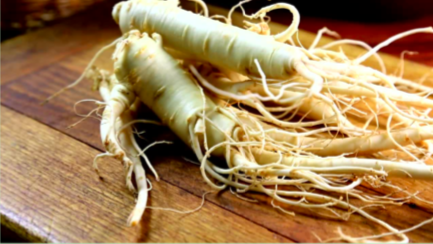The word “antioxidant” is very commonly used amongst mainstream marketing for health foods and supplements. For a word that is thrown around so much what does it actually mean? According to Oxford Languages “Antioxidants are compounds that inhibit oxidation, a chemical reaction that can produce free radicals and chain reactions that may damage the cells of organisms (Oxford Languages)”. To simplify this further, antioxidants help to stop damage to the cells in the body.
Antioxidants are found in many foods such as green leafy vegetables, berries, carrots, potatoes, avocados, pumpkin and dark chocolate to name a few. They have many amazing health benefits including protecting against disease, reducing inflammation and reducing damage from free radicals and anti-aging properties (Shahidi, 2000).
A plethora of studies have been conducted to show the antioxidant capacity of ginseng, in particular aged ginseng. One particular study looked at comparing the antioxidant capacity of red, white and aged ginseng and found that the aged ginseng had a greater antioxidant capacity than both the white and red ginseng. This illustrates the higher effectiveness of aged ginseng as an antioxidant functional food that can be consumed to greater support health and wellbeing (Chung et al. 2016).
Another study conducted on rabbits with high cholesterol found that after 4 weeks of supplementing with panax ginseng, the small compounds from ginseng had a positive effect on hypercholesterolemia (high cholesterol) as shown by the antioxidant enzyme activities and morphological changes of the aorta. This shows effectiveness in improving high cholesterol induced side effects such as atherosclerosis (buildup of plaque in the heart arteries) and hyperlipidemia (too much fat/cholesterol in the blood) (Lee et al., 2013).
The anti-ageing effects of ginseng were reviewed in a meta-analysis of different studies. It was found that the ageing process is closely related to an increase in oxygen-derived free radicals and oxidative stress. Ginseng’s ability to reduce the ageing process can be related to its ability to reduce oxidative stress and eliminate free radicals in the body. It was also found that by reducing this, antioxidant potential can be restored, apoptotic cell death can be reduced and metabolic pathways in the body can be enhanced to help reduce organ injuries from free radicals protecting the heart, liver, lungs and kidneys (Yang et al., 2017).
Whether it be for protecting against disease, reducing cellular damage or for anti-ageing, including antioxidant rich functional foods into your daily food intake such as ginseng is a no brainer. Reducing oxidative stress and inflammation go hand in hand with reducing ageing, cell damage and helping the body to thrive. By including as little as one serving of ginseng into your day you are optimising your body’s functionality and taking care of it from a preventative and holistic non-harmful approach.
References
Chung, S. I., Kang, M. Y., & Lee, S. C. (2016). In Vitro and In Vivo Antioxidant Activity of Aged Ginseng (Panax ginseng). Preventive nutrition and food science, 21(1), 24–30. https://doi.org/10.3746/pnf.2016.21.1.24
Lee, L.-S., Cho, C.-W., Hong, H.-D., Lee, Y.-C., Choi, U.-K., & Kim, Y.-C. (2013). Hypolipidemic and Antioxidant Properties of Phenolic Compound-Rich Extracts from White Ginseng (Panax ginseng) in Cholesterol-Fed Rabbits. Molecules, 18(10), 12548–12560. https://doi.org/10.3390/molecules181012548
Oxford Languages, accessed on 17/06/2022, <https://languages.oup.com/google-dictionary-en/>
Shahidi, F. (2000). Molecular Nutrition, Food Research. Antioxidants in food and food antioxidants, vol 44 (3). https://doi.org/10.1002/1521-3803(20000501)44:3<158::AID-FOOD158>3.0.CO;2-L
Yang, Y., Ren, C., Zhang, Y., & Wu, X. (2017). Ginseng: An Nonnegligible Natural Remedy for Healthy Aging. Aging and disease, 8(6), 708–720. https://doi.org/10.14336/AD.2017.0707




